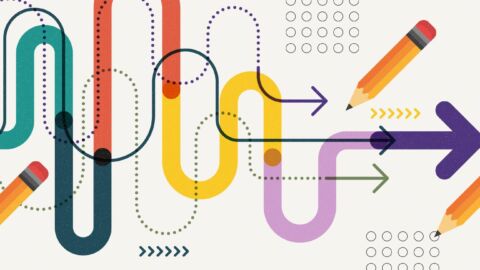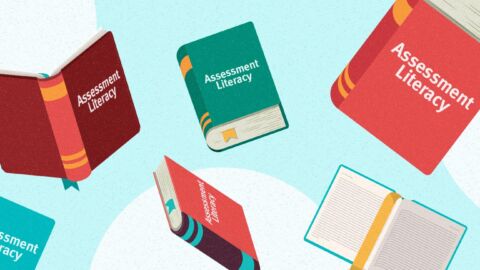
A Flawed Approach to Supporting Teacher Learning: ‘Cruel Optimism’
In this TikTok era, we break teachers’ learning into bite-sized pieces and expect them to learn on their own. But we accept this model at our peril.
Read More
In this TikTok era, we break teachers’ learning into bite-sized pieces and expect them to learn on their own. But we accept this model at our peril.
Read More
Choosing local assessments can be tricky. A new guide walks district leaders through the questions they should ask and the evidence they should request.
Read More
We use a lot of assessment names—formative, interim, benchmark—without agreeing on their meaning and use. The cost? Public understanding and student learning.
Read More
Policymakers and educators should have guidance to make sense of why different assessments can yield such different results.
Read More
Discussing how digital tools, when implemented correctly, can help educators and school officials make informed decisions about how to support student learning.
Read More
A blog post from one of our interns presents a framework for improving classroom assessment practices.
Read More
Clear communication is a requirement of effective assessment design and use, but outside factors can often muddy the waters and cause confusion.
Read More
We’re offering 23 professional classroom assessment learning modules, an expansion of 7 modules offered at the beginning of the pandemic.
Read More
Developing Needs-Based Sociocultural Approaches to Professional Development and Assessment Literacy This post is a summary of the main ideas from a symposium focused on educators’ assessment literacy presented at the […]
Read More
Making Teachers Active Agents in Improving Assessment Literacy Most of us would agree that if the problem of improving K-12 educator assessment literacy has not been solved, it is not […]
Read More
Challenges and Approaches to Guide New Teachers in the Wake of COVID-19 School Disruptions This fall, a batch of fresh new teachers, eager and anxious to start their careers, will […]
Read More
Leveraging a Formative Assessment Approach to Inform Student Learning Progress and Teaching Practices in a Post-Pandemic Education Environment The pandemic has surfaced disparities among students with respect to equitable educational […]
Read More
Educators Need Clear Descriptions of the Intended Uses and Interpretations of Educational Assessments Educational assessment has a naming problem and the latest example of it is the current rhetoric regarding […]
Read More
Collaborating to Fill a Void in Information to Support the Effective Use of Educational Assessment City Year is an American education nonprofit organization founded in 1988 and dedicated to helping […]
Read More
Thoughts About Scaling Educational Reforms to Increase Educators’ Assessment Literacy I am encouraged that so many educational leaders are wrestling with systematically bringing educational reforms to scale. Unfortunately, as these […]
Read More
Simple Explanations and Solutions are Appealing, but Insufficient to Affect the Changes Needed to Move NAEP Results The 2019 NAEP results (National Assessment of Educational Progress) were released last week […]
Read More
How We Can Support Education Policymakers in Making Important Assessment Decisions This is the first in a series of CenterLine posts by our 2019 summer interns and their Center mentors based on […]
Read More
Colloquial Language is More Familiar, But Can be More Easily Misinterpreted When Reporting Test Results With the proliferation of large-scale state summative assessments and published results, one could say that […]
Read More